Perfect Sense

Riguardo al testo, la voce di HAL non è presente sulla registrazione finale, poiché Stanley Kubrick non diede a Waters il permesso di usarla.
Se pensate bene, tempo prima (nel 1970 circa, i Pink Floyd ancora "interi"), Waters e compagni non permisero a Stanley Kubrick di usare le musiche di Atom Heart Mother per Arancia Meccanica... Che Kubrick si sia arrabbiato con Waters? Ma dopo tutto, era una musica troppo solenne per un film così violento...
Se pensate bene, tempo prima (nel 1970 circa, i Pink Floyd ancora "interi"), Waters e compagni non permisero a Stanley Kubrick di usare le musiche di Atom Heart Mother per Arancia Meccanica... Che Kubrick si sia arrabbiato con Waters? Ma dopo tutto, era una musica troppo solenne per un film così violento...
Luca 19/2/2010 - 14:29
Green Grow The Rushes
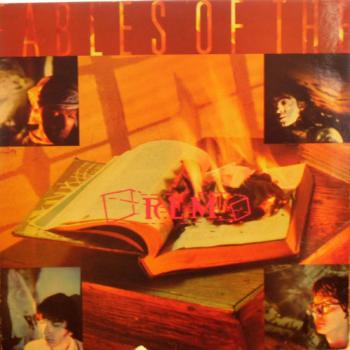
[1985]
Album "Fables of the Reconstruction"
Una canzone che con Flowers of Guatemala e Welcome To The Occupation costituisce una sorta di trilogia sulla politica statunitense verso i paesi del centro e sud America negli anni 80, in particolare rispetto alla questione dell'immigrazione, solo apparentemente contrastata con la forza (e con grande spargimento di sangue) ma tollerata, quando non incentivata, a seconda delle esigenze del mercato, che sempre predilige la manodopera a basso costo ("some surplus, cheaper hands") - in maggioranza clandestini ("Pay for your freedom, find another gate") sfruttati, ricattati, minacciati - per massimizzare i propri profitti ("The amber waves of gain")...
Il titolo si riferisce probabilmente alla canzone popolare religiosa di origine ebraica "Green Grow The Rushes, Ho", un brano molto noto nel mondo anglofono. Alcune fonti ritengono che gli immigrati... (continuer)
Album "Fables of the Reconstruction"
Una canzone che con Flowers of Guatemala e Welcome To The Occupation costituisce una sorta di trilogia sulla politica statunitense verso i paesi del centro e sud America negli anni 80, in particolare rispetto alla questione dell'immigrazione, solo apparentemente contrastata con la forza (e con grande spargimento di sangue) ma tollerata, quando non incentivata, a seconda delle esigenze del mercato, che sempre predilige la manodopera a basso costo ("some surplus, cheaper hands") - in maggioranza clandestini ("Pay for your freedom, find another gate") sfruttati, ricattati, minacciati - per massimizzare i propri profitti ("The amber waves of gain")...
Il titolo si riferisce probabilmente alla canzone popolare religiosa di origine ebraica "Green Grow The Rushes, Ho", un brano molto noto nel mondo anglofono. Alcune fonti ritengono che gli immigrati... (continuer)
The wheelbarrow's fallen
(continuer)
(continuer)
envoyé par Alessandro 19/2/2010 - 13:07
Free World

[1989]
Album "Kite"
Una canzone dedicata alla vita della gente comune in Inghilterra negli anni del thatcherismo...
Album "Kite"
Una canzone dedicata alla vita della gente comune in Inghilterra negli anni del thatcherismo...
I thought of you when they closed down the school
(continuer)
(continuer)
envoyé par Alessandro 19/2/2010 - 11:26
San Quentin

"Nonno" Cash ci manca ogni giorno... inarrivabile. Questa è pura poesia.
Alberto 18/2/2010 - 18:58
Sólo le pido a Dios

La nuova guerra delle Falkland
La posta in gioco è il petrolio
Una società britannica inizia le ricerche di altri giacimenti e il governo argentino limita la navigazione verso le isole
di Omero Ciai, da La Repubblica
Sott'acqua, intorno all'arcipelago delle Falkland/Malvinas, ci sarebbero, secondo uno studio della Geological Society of London, 60 miliardi di barili di greggio. Un tesoro difficile da sottrarre all'Oceano ma che, visti i costi crescenti del petrolio, diventa ogni giorno più appetitoso. Tant'è vero che una impresa britannica, Desire Petroleum, ha annunciato l'avvio delle ricerche nell'area a nord delle isole dove spera di estrarre nei prossimi anni fino a 3 miliardi di barili di oro nero. L'interesse di Desire e di altre aziende del Regno Unito a caccia di idrocarburi per far girare il mondo nei prossimi decenni ha riaperto in Argentina la ferita della contesa sulla Falkland/Malvinas... (continuer)
La posta in gioco è il petrolio
Una società britannica inizia le ricerche di altri giacimenti e il governo argentino limita la navigazione verso le isole
di Omero Ciai, da La Repubblica
Sott'acqua, intorno all'arcipelago delle Falkland/Malvinas, ci sarebbero, secondo uno studio della Geological Society of London, 60 miliardi di barili di greggio. Un tesoro difficile da sottrarre all'Oceano ma che, visti i costi crescenti del petrolio, diventa ogni giorno più appetitoso. Tant'è vero che una impresa britannica, Desire Petroleum, ha annunciato l'avvio delle ricerche nell'area a nord delle isole dove spera di estrarre nei prossimi anni fino a 3 miliardi di barili di oro nero. L'interesse di Desire e di altre aziende del Regno Unito a caccia di idrocarburi per far girare il mondo nei prossimi decenni ha riaperto in Argentina la ferita della contesa sulla Falkland/Malvinas... (continuer)
Alessandro 18/2/2010 - 14:46
Old England
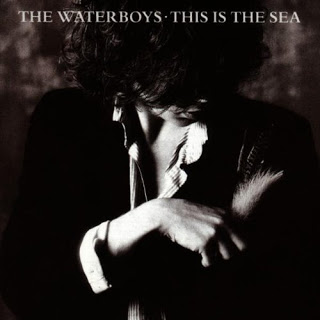
[1985]
Album "This Is the Sea"
"Old England" is a criticism of Thatcherism, blaming Margaret Thatcher's economic policies for what The Waterboys perceived to be an increase in desperation amongst the young and poor in the England of that time, and a rise in drug addiction, specifically to heroin. The refrain, Old England is dying is a quote from James Joyce, and the lines You're asking what makes me sigh now / What it is makes me shudder so are from W.B. Yeats' poem, Mad as the Mist and Snow.
(en.wikipedia)
Album "This Is the Sea"
"Old England" is a criticism of Thatcherism, blaming Margaret Thatcher's economic policies for what The Waterboys perceived to be an increase in desperation amongst the young and poor in the England of that time, and a rise in drug addiction, specifically to heroin. The refrain, Old England is dying is a quote from James Joyce, and the lines You're asking what makes me sigh now / What it is makes me shudder so are from W.B. Yeats' poem, Mad as the Mist and Snow.
(en.wikipedia)
Man looks up on a yellow sky
(continuer)
(continuer)
envoyé par Alessandro 18/2/2010 - 14:22
Parcours:
Miss Maggie Thatcher
Freedom is Humanity
Tolerance is key to dismantling oppression
(continuer)
(continuer)
envoyé par Alessandro 18/2/2010 - 13:43
Forgotten Genocide
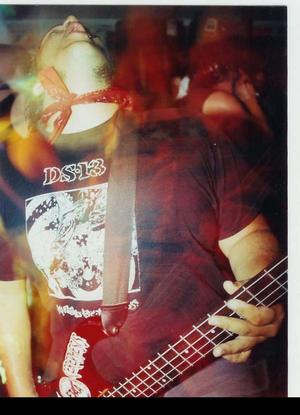
A trail of blood from sea to sea
(continuer)
(continuer)
envoyé par Alessandro 18/2/2010 - 13:41
Money, Power and Lies

They break into our houses
(continuer)
(continuer)
envoyé par Alessandro 18/2/2010 - 13:35
Rich man's War, Poor Man's Struggle
Sign off your life, pack up your bags
(continuer)
(continuer)
envoyé par Alessandro 18/2/2010 - 13:29
The Unknown War Criminal
[2005]
Testo trovato su archive.org
Testo trovato su archive.org
He likes the tales and legends,
(continuer)
(continuer)
envoyé par Alessandro 18/2/2010 - 13:18
The Spun Us Another War, Ma
[2003]
Scritta un mese dopo l'invasione americana dell'Iraq nel marzo 2003.
Scritta un mese dopo l'invasione americana dell'Iraq nel marzo 2003.
They spun us another war, ma
(continuer)
(continuer)
envoyé par Alessandro 18/2/2010 - 12:52
Standing On the Moon
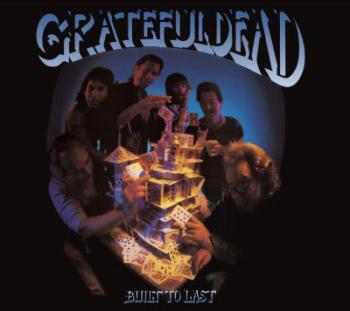
[1989]
Album "Built to Last"
Words by Robert Hunter
Music by Jerry Garcia
Album "Built to Last"
Words by Robert Hunter
Music by Jerry Garcia
Standing on the moon
(continuer)
(continuer)
envoyé par Alessandro 18/2/2010 - 12:37
U.S. Blues

[1974]
Album "Grateful Dead from the Mars Hotel"
Words by Robert Hunter
Music by Jerry Garcia
Album "Grateful Dead from the Mars Hotel"
Words by Robert Hunter
Music by Jerry Garcia
Red and white
(continuer)
(continuer)
envoyé par Alessandro 18/2/2010 - 11:20
Throwing Stones
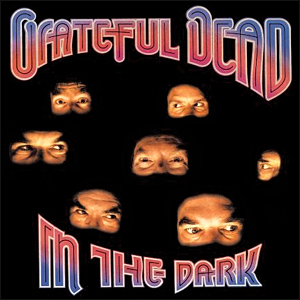
[1982]
Album "In the Dark" (1987)
Words by John Perry Barlow
Music by Bob Weir
Il brano è incluso pure nella compilation "Greenpeace: Rainbow Warriors" uscita nel 1989 per commemorare l'attentato subito da Greenpeace nel 1985, quando i servizi segreti francesi affondarono la nave ammiraglia del movimento, la "Rainbow Warrior", mentre si trovava alla fonda nel porto neozelandese di Auckland. Nell'attentato morì il fotografo Fernando Pereira, attivista di Greenpeace.
Album "In the Dark" (1987)
Words by John Perry Barlow
Music by Bob Weir
Il brano è incluso pure nella compilation "Greenpeace: Rainbow Warriors" uscita nel 1989 per commemorare l'attentato subito da Greenpeace nel 1985, quando i servizi segreti francesi affondarono la nave ammiraglia del movimento, la "Rainbow Warrior", mentre si trovava alla fonda nel porto neozelandese di Auckland. Nell'attentato morì il fotografo Fernando Pereira, attivista di Greenpeace.
Picture a bright blue ball, just spinning, spinnin free,
(continuer)
(continuer)
envoyé par Alessandro 18/2/2010 - 11:02
Caporetto '17
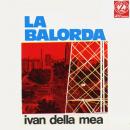
Chanson italienne – Caporetto '17 – Ivan Della Mea – 1973
Juste deux petites remarques : la première concerne le mot : « Hostie » (in italiano : ostia) qui dans un usage ancien – dans les deux langues – signifie : victime sacrificielle – j'ai préféré garder le mot tel quel (et non victime); la seconde, c'est de renvoyer pour le commentaire à Judith à Caporetto.
Ce Badoglio quand même..., dit Lucien l'âne en raclant le sol de colère rentrée. C'est un peu le Pétain italien... La vieille baderne qui avait conquis sa « gloire » sur la peau des autres, qui ordonna mille massacres, s'en courut dès qu'il le put, servit sous le régime et qu'on rappela en sauveur de la nation.... Le Saint Pierre de la chanson a bien raison... et Tonio encore plus, mieux vaut encore s'en aller au diable.... que fréquenter ces gens-là.
Ainsi Parlaient Marco Valdo M.I. et Lucien Lane
Juste deux petites remarques : la première concerne le mot : « Hostie » (in italiano : ostia) qui dans un usage ancien – dans les deux langues – signifie : victime sacrificielle – j'ai préféré garder le mot tel quel (et non victime); la seconde, c'est de renvoyer pour le commentaire à Judith à Caporetto.
Ce Badoglio quand même..., dit Lucien l'âne en raclant le sol de colère rentrée. C'est un peu le Pétain italien... La vieille baderne qui avait conquis sa « gloire » sur la peau des autres, qui ordonna mille massacres, s'en courut dès qu'il le put, servit sous le régime et qu'on rappela en sauveur de la nation.... Le Saint Pierre de la chanson a bien raison... et Tonio encore plus, mieux vaut encore s'en aller au diable.... que fréquenter ces gens-là.
Ainsi Parlaient Marco Valdo M.I. et Lucien Lane
CAPORETTO 1917
(continuer)
(continuer)
envoyé par Marco Valdo M.I. 17/2/2010 - 21:46
Act III Scene 2 (Shakespeare)
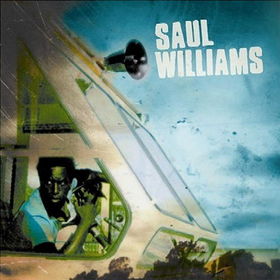
[2004]
Lyrics & Music by Saul Williams and Zack de la Rocha
Album: Saul Williams
Once the audience has been introduced to the central character, Saul Williams, the artist, and this central character has dealt with the current state of hip hop, he makes an open call to the youth of America, transcending hip hop and speaking to larger social issues:
"This is a call out to all the youth in the ghettos, suburbs, villages, townships: to all the kids who download this song for free. By any means. To all the kids short on loot but high on dreams. To all the kids watching TV like, yo, I wish that was me...I hear you. To all the people within the sound of my voice...".
Here, Williams again targets a large audience that transcends the hip hop community. He speaks to the youth of the world. He discusses the "state of affairs, likening the situation to Shakespeare's Julius Cæsar:
"Brutus... (continuer)
Lyrics & Music by Saul Williams and Zack de la Rocha
Album: Saul Williams
Once the audience has been introduced to the central character, Saul Williams, the artist, and this central character has dealt with the current state of hip hop, he makes an open call to the youth of America, transcending hip hop and speaking to larger social issues:
"This is a call out to all the youth in the ghettos, suburbs, villages, townships: to all the kids who download this song for free. By any means. To all the kids short on loot but high on dreams. To all the kids watching TV like, yo, I wish that was me...I hear you. To all the people within the sound of my voice...".
Here, Williams again targets a large audience that transcends the hip hop community. He speaks to the youth of the world. He discusses the "state of affairs, likening the situation to Shakespeare's Julius Cæsar:
"Brutus... (continuer)
This is a call out to all the youth..
(continuer)
(continuer)
envoyé par giorgio 17/2/2010 - 21:13
Streets of Sorrow
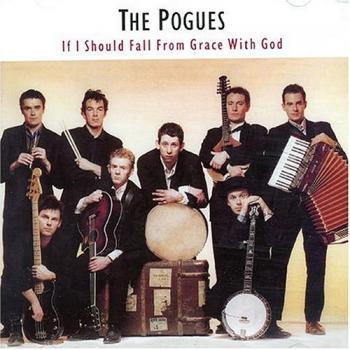
[1988]
Lyrics & Music by Terry Woods and Shane MacGowan
Album: If I Should Fall from Grace with God
Vedi anche un articolo di Silvia Morosi
Divided into two parts, the first ("Streets of Sorrow") written and sung by Woods, describing the pain and sadness on the streets of Northern Ireland at the height of the Troubles , the song is told from the point of view of someone who is leaving the place due to the increasing violence and conflict and who vows never to return "to see more sorrow, nor to see more young men slain".
The second part of the song ("Birmingham Six") written and sung by MacGowan, is a demonstration of support to the Birmingham Six and Guildford Four and the view that they were the victims of a miscarriage of justice and that their confessions had been extracted by torture at the hands of the West Midlands Serious Crime Squad, claiming "there were six men in Birmingham,... (continuer)
Lyrics & Music by Terry Woods and Shane MacGowan
Album: If I Should Fall from Grace with God
Vedi anche un articolo di Silvia Morosi
Divided into two parts, the first ("Streets of Sorrow") written and sung by Woods, describing the pain and sadness on the streets of Northern Ireland at the height of the Troubles , the song is told from the point of view of someone who is leaving the place due to the increasing violence and conflict and who vows never to return "to see more sorrow, nor to see more young men slain".
The second part of the song ("Birmingham Six") written and sung by MacGowan, is a demonstration of support to the Birmingham Six and Guildford Four and the view that they were the victims of a miscarriage of justice and that their confessions had been extracted by torture at the hands of the West Midlands Serious Crime Squad, claiming "there were six men in Birmingham,... (continuer)
Oh farewell you streets of sorrow
(continuer)
(continuer)
envoyé par giorgio 17/2/2010 - 17:30
Parcours:
Les conflits irlandais
L'homme en pain d'épice
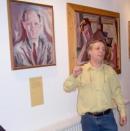
L'homme en pain d'épice
L'homme en pain d'épice– Marco Valdo M.I. – 2010
Cycle du Cahier ligné – 89
L'homme en pain d'épice est la huitante-neuvième chanson du Cycle du Cahier ligné, constitué d'éléments tirés du Quaderno a Cancelli de Carlo Levi.
Comme tu le verras ou l'entendras, Lucien mon ami l'âne, la rêverie du prisonnier solitaire est comme un voyage autour de sa chambre, ce qui somme toute pourrait être le titre du Cycle du Cahier ligné, s'il n'existait déjà sous ce titre de Voyage autour de ma chambre, une sorte de longue nouvelle ou de roman d'un prisonnier. C'était au temps où l'Italie allait seulement devenir elle-même... Il était sous-titré, dans certaines éditions, ce qui pour nous a de l'importance : Expédition nocturne autour de ma chambre. Et la canzone d'aujourd'hui a comme titre « L'homme en pain d'épice » et commence par la description d'une simple chambre, une pièce... (continuer)
L'homme en pain d'épice– Marco Valdo M.I. – 2010
Cycle du Cahier ligné – 89
L'homme en pain d'épice est la huitante-neuvième chanson du Cycle du Cahier ligné, constitué d'éléments tirés du Quaderno a Cancelli de Carlo Levi.
Comme tu le verras ou l'entendras, Lucien mon ami l'âne, la rêverie du prisonnier solitaire est comme un voyage autour de sa chambre, ce qui somme toute pourrait être le titre du Cycle du Cahier ligné, s'il n'existait déjà sous ce titre de Voyage autour de ma chambre, une sorte de longue nouvelle ou de roman d'un prisonnier. C'était au temps où l'Italie allait seulement devenir elle-même... Il était sous-titré, dans certaines éditions, ce qui pour nous a de l'importance : Expédition nocturne autour de ma chambre. Et la canzone d'aujourd'hui a comme titre « L'homme en pain d'épice » et commence par la description d'une simple chambre, une pièce... (continuer)
Je contemple cette pièce dépouillée,
(continuer)
(continuer)
envoyé par Marco Valdo M.I. 17/2/2010 - 16:40
Ballate della violenza [Ballata della piccola e della grande violenza]
![Ballate della violenza [Ballata della piccola e della grande violenza]](img/thumb/c24873_130x140.jpeg?1417794420)
Version française – LA GRANDE ET LA PETITE VIOLENCE – Marco Valdo M.I.– 2010
Chanson italienne – La grande e la piccola violenza – Ivan Della Mea – 1962
« […] Entre 1957 et 1960, viennent au jour les ballades de LA GRANDE ET LA PETITE VIOLENCE. C'est ce moment où Ivan Della Mea …, puise impétueusement dans les souvenirs et les images taillées dans l'irruption féroce de l'enfance et de l'adolescence, fouettées par la furie guerrière et par les blessures post-bellum, donne une marque précise à son engagement politique et artistique.
Au travers des aventures familiales (« la petite violence ») – où le père, brigadier fasciste, revit ses moments d'exaltation et ceux de déconfiture... jusqu'à sa mort – il réussit à construire une fresque magistrale qui recueille globalement le climat, à la fois tragique et effervescent, de la période dictatoriale et de celle post-résitancielle de la restauration.... (continuer)
Chanson italienne – La grande e la piccola violenza – Ivan Della Mea – 1962
« […] Entre 1957 et 1960, viennent au jour les ballades de LA GRANDE ET LA PETITE VIOLENCE. C'est ce moment où Ivan Della Mea …, puise impétueusement dans les souvenirs et les images taillées dans l'irruption féroce de l'enfance et de l'adolescence, fouettées par la furie guerrière et par les blessures post-bellum, donne une marque précise à son engagement politique et artistique.
Au travers des aventures familiales (« la petite violence ») – où le père, brigadier fasciste, revit ses moments d'exaltation et ceux de déconfiture... jusqu'à sa mort – il réussit à construire une fresque magistrale qui recueille globalement le climat, à la fois tragique et effervescent, de la période dictatoriale et de celle post-résitancielle de la restauration.... (continuer)
LA GRANDE ET LA PETITE VIOLENCE
(continuer)
(continuer)
envoyé par Marco Valdo M.I. 17/2/2010 - 15:02
World Peace
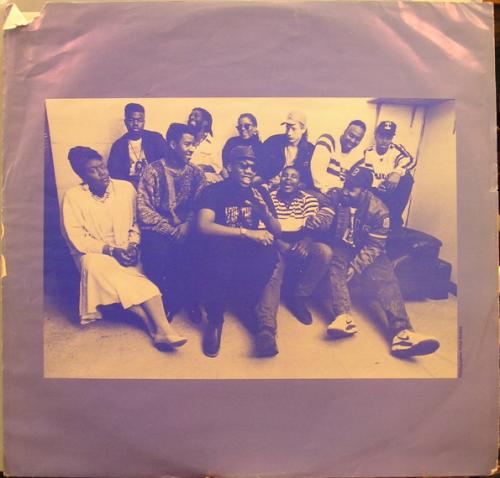
[1989]
Album "Ghetto Music: The Blueprint of Hip Hop"
Album "Ghetto Music: The Blueprint of Hip Hop"
World peace.. or world TALK?!
(continuer)
(continuer)
envoyé par Alessandro 17/2/2010 - 14:07
Who Protects Us From You?

[1989]
Album "Ghetto Music: The Blueprint of Hip Hop"
Album "Ghetto Music: The Blueprint of Hip Hop"
(Fy-ah! Come down fas'...)
(continuer)
(continuer)
envoyé par Alessandro 17/2/2010 - 14:03
Stop the Violence
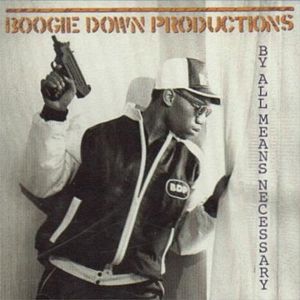
[1988]
Album "By All Means Necessary"
Album "By All Means Necessary"
Worldwide BDP are the freshest!
(continuer)
(continuer)
envoyé par Alessandro 17/2/2010 - 13:56
Mentioned In Dispatches

[1985]
Album "The Painted Word"
Album "The Painted Word"
He got no ribbons, no decorations
(continuer)
(continuer)
envoyé par Alessandro 17/2/2010 - 13:34
King and Country
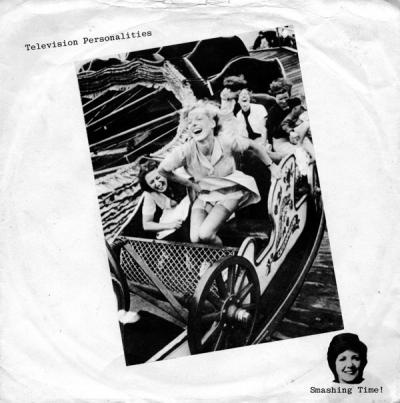
[1980]
Do you always clean your medals on a wet weekend?
(continuer)
(continuer)
envoyé par Alessandro 17/2/2010 - 13:28
Back To Vietnam
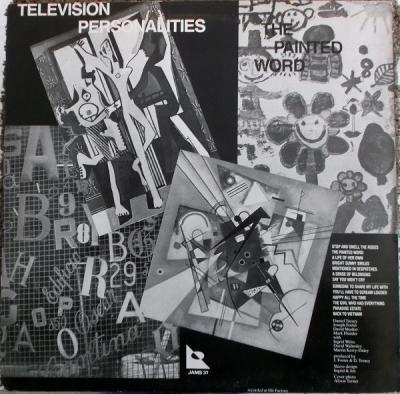
[1985]
Album "The Painted Word"
Album "The Painted Word"
He wakes up screaming
(continuer)
(continuer)
envoyé par Alessandro 17/2/2010 - 13:24
How I Learned To Love The Bomb

[1994]
Album "How I Learned To Love The Bomb"
Album "How I Learned To Love The Bomb"
Well there's no more sleepless nights for me
(continuer)
(continuer)
envoyé par Alessandro 17/2/2010 - 12:57
Le gorille
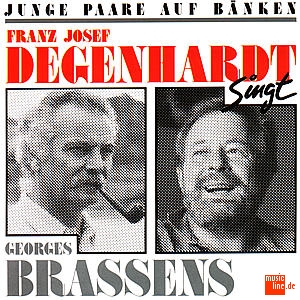
Die deutsche Fassung von Franz Josef Degenhardt
Come segnalato da Christoph Gerhard, fa parte dell'album Junge Paare auf Bänken (= "Les amoureux des bancs publics"), interamente composto di traduzioni da Brassens effettuate da Degenhardt. Una versione con qualche excursus nell'attualità tedesca ("als die Pershing zwo bei Heilbronn explodierte", ancora più decisamente contro la guerra...[CCG/AWS Staff]
VORSICHT GORILLA
(continuer)
(continuer)
envoyé par CCG/AWS Staff 17/2/2010 - 01:26
You Ain't Done Nothing If You Ain't Been Called a Red

[1986?]
Nell'LP "Swords into Plowshares", Folk Tradition.
Interpretata anche da Faith Petric e Mark Ross nel disco collettivo "Rebel Voices: Songs of the Industrial Workers of the World"
Nell'LP "Swords into Plowshares", Folk Tradition.
Interpretata anche da Faith Petric e Mark Ross nel disco collettivo "Rebel Voices: Songs of the Industrial Workers of the World"
When I was just a little thing I used to love parades
(continuer)
(continuer)
envoyé par Alessandro 16/2/2010 - 14:59
Clinton Got A Blowjob

Vabbè, una canzone divertente in cui si vorrebbe far passare Clinton, confrontandolo col perfido George W. Bush, come un presidente tanto "pacifista" da essersi interessato solo ai bocchini della Lewinsky... Trascura Schwartz di ricordare le nefandezze compiute da Clinton in Somalia, l'assordante silenzio sul genocidio in Rwanda, gli ingiustificati bombardamenti su insediamenti civili in Sudan, la guerra contro la Yugoslavia (con i bombardamenti su convogli di profughi, la distruzione del palazzo delle TV serba e dell'ambasciata cinese), i continui raid aerei e l'embargo feroce che causarono decine di migliaia di morti in Iraq tra la prima e la seconda guerra del Golfo, l'intensificazione del blocco contro il regime cubano...
Tuttavia, vi è di certo che Clinton subì un procedimento di impeachment a causa di un pompino, mentre quei gran figli di puttana di Bush e Blair, con tutte le loro... (continuer)
Tuttavia, vi è di certo che Clinton subì un procedimento di impeachment a causa di un pompino, mentre quei gran figli di puttana di Bush e Blair, con tutte le loro... (continuer)
George Bush lied about weapons of mass destruction
(continuer)
(continuer)
envoyé par Alessandro 16/2/2010 - 14:25
Keep Your Jesus Off My Penis
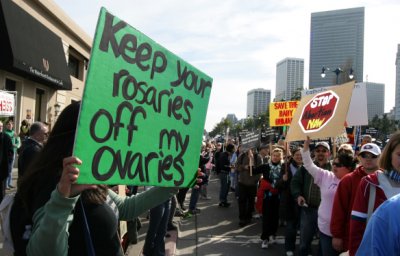
[2004]
Keep your Jesus off my penis
(continuer)
(continuer)
envoyé par Alessandro 16/2/2010 - 13:45
Parcours:
Antiwar Anticléricale
Unplayed Piano
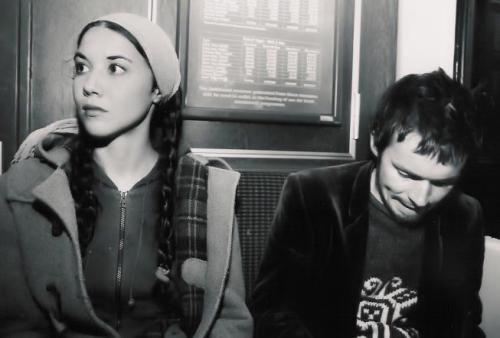
[2005]
Scritta da Damien Rice e Lisa Hannigan a sostegno della campagna per la liberazione della dissidente birmana Aung San Suu Kyi, sequestrata in casa sua dalla dittatura militare praticamente dal 1990...
Scritta da Damien Rice e Lisa Hannigan a sostegno della campagna per la liberazione della dissidente birmana Aung San Suu Kyi, sequestrata in casa sua dalla dittatura militare praticamente dal 1990...
Come and see me
(continuer)
(continuer)
envoyé par Alessandro 16/2/2010 - 13:05
(Something Inside) So Strong
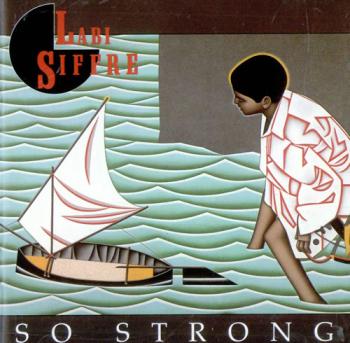
[1987]
Una canzone contro l'apartheid che Labi Siffre scrisse dopo essere rimasto sconvolto da un documentario in cui veniva mostrato un soldato del regime sudafricano che sparava a freddo su un bambino di colore...
Canzone scritta nel 1984 e poi inclusa nell'album intitolato "So Strong" del 1987.
La canzone fu ripresa con grande successo da Kenny Rogers nel 1989.
(Bernart Bartleby)
Una canzone contro l'apartheid che Labi Siffre scrisse dopo essere rimasto sconvolto da un documentario in cui veniva mostrato un soldato del regime sudafricano che sparava a freddo su un bambino di colore...
Canzone scritta nel 1984 e poi inclusa nell'album intitolato "So Strong" del 1987.
La canzone fu ripresa con grande successo da Kenny Rogers nel 1989.
(Bernart Bartleby)
The higher you build your barriers
(continuer)
(continuer)
envoyé par Alessandro 16/2/2010 - 12:45
Sullivan

[1993]
Lyrics & Music by James "Jimmy" P. Newquist
Album: Ignore The Ants [1995]
The song tells the true story of five siblings, the Sullivan brothers from Waterloo, Iowa, who died aboard the USS "Juneau" in WW2.
Lyrically, it focuses on Mrs. Sullivan's communication both with her sons and the military. Caroline's Spine singer and main songwriter Jimmy Newquist wrote the song after reading the war documentary Hollywood Goes to War. Regarding his inspiration, he remarked:
"Coming from a big family, the story of five brothers really struck home with me. . . I saw a news clipping with a photo of Mrs. Sullivan holding a banner with five gold stars - one for each of her dead sons. It's a really sad story with incredible loyalty and courage."
Newquist later noted, "The song was an act of love. . . I sleep well at night knowing that I brought attention to something that shouldn't be forgotten."... (continuer)
Lyrics & Music by James "Jimmy" P. Newquist
Album: Ignore The Ants [1995]
The song tells the true story of five siblings, the Sullivan brothers from Waterloo, Iowa, who died aboard the USS "Juneau" in WW2.
Lyrically, it focuses on Mrs. Sullivan's communication both with her sons and the military. Caroline's Spine singer and main songwriter Jimmy Newquist wrote the song after reading the war documentary Hollywood Goes to War. Regarding his inspiration, he remarked:
"Coming from a big family, the story of five brothers really struck home with me. . . I saw a news clipping with a photo of Mrs. Sullivan holding a banner with five gold stars - one for each of her dead sons. It's a really sad story with incredible loyalty and courage."
Newquist later noted, "The song was an act of love. . . I sleep well at night knowing that I brought attention to something that shouldn't be forgotten."... (continuer)
It's not hard to reach back to the day underneath that Iowa sun
(continuer)
(continuer)
envoyé par giorgio 16/2/2010 - 12:13
La marcha de la bronca
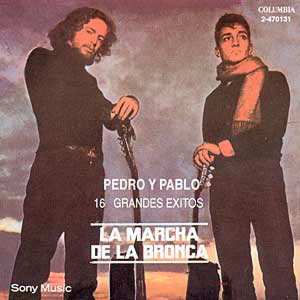
[1970]
Scritta da Miguel Cantilo
"Rabbia quando senza ragione mi obbligano a tagliarmi i capelli.
È meglio tenere i capelli lunghi che la libertà con il gel"
Un’altra incredibile canzone del duo argentino formato da Miguel Cantilo y Jorge Durietz, in arte Pedro y Pablo. Incredibile perché in Argentina nel 1970 c’era già la dittatura, quella di Onganìa, la prova generale del feroce regime che sarebbe seguito di lì a qualche anno.
Incredibile è pure come Pedro y Pablo siano sopravvissuti più tardi a Videla e ai suoi torturatori ed assassini.
Non ebbe la stessa fortuna Raymundo Gleyzer, reporter, critico cinematografico, cineasta e documentarista che nel 1973 scelse questa canzone per la colonna sonora del suo film “Los traidores”, storia di un sindacalista che da difensore dei lavoratori diventa il portavoce della destra e dei padroni (dovrebbero vederselo Bonanni e Angeletti!): Gleyzer fu sequestrato a Buenos Aires il 27 maggio 1976 mentre usciva dalla sede del Sindicato Cinematográfico Argentino.
È a tutt’oggi un “desaparecido”.
Scritta da Miguel Cantilo
"Rabbia quando senza ragione mi obbligano a tagliarmi i capelli.
È meglio tenere i capelli lunghi che la libertà con il gel"
Un’altra incredibile canzone del duo argentino formato da Miguel Cantilo y Jorge Durietz, in arte Pedro y Pablo. Incredibile perché in Argentina nel 1970 c’era già la dittatura, quella di Onganìa, la prova generale del feroce regime che sarebbe seguito di lì a qualche anno.
Incredibile è pure come Pedro y Pablo siano sopravvissuti più tardi a Videla e ai suoi torturatori ed assassini.
Non ebbe la stessa fortuna Raymundo Gleyzer, reporter, critico cinematografico, cineasta e documentarista che nel 1973 scelse questa canzone per la colonna sonora del suo film “Los traidores”, storia di un sindacalista che da difensore dei lavoratori diventa il portavoce della destra e dei padroni (dovrebbero vederselo Bonanni e Angeletti!): Gleyzer fu sequestrato a Buenos Aires il 27 maggio 1976 mentre usciva dalla sede del Sindicato Cinematográfico Argentino.
È a tutt’oggi un “desaparecido”.
Bronca cuando ríen satisfechos
(continuer)
(continuer)
envoyé par Alessandro 16/2/2010 - 11:51
Reuters
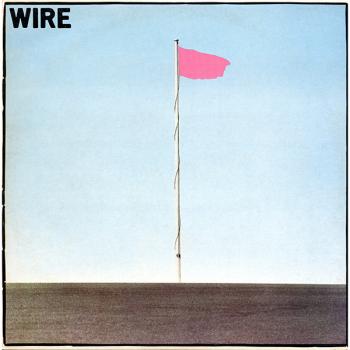
[1977]
Album "Pink Flag"
Album "Pink Flag"
Our own correspondent is sorry to tell
(continuer)
(continuer)
envoyé par Alessandro 16/2/2010 - 11:21
Die Befindlichkeit des Landes
Traduzione inglese dal sito ufficiale del gruppo.
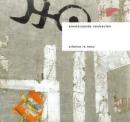
THE LAY OF THE LAND
(continuer)
(continuer)
envoyé par Alessandro 16/2/2010 - 10:11
Headcleaner!
Traduzione inglese dal sito ufficiale del gruppo.
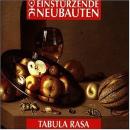
HEADCLEANER
(continuer)
(continuer)
envoyé par Alessandro 16/2/2010 - 10:09
VietNam Blues

[1966]
Lyrics by Dave Dudley
Lyrics by Dave Dudley
I was out on the leave at the time just duckin' the fog
(continuer)
(continuer)
envoyé par giorgio 16/2/2010 - 08:08
Parcours:
Guerre au Vietnam: vue des USA
Le gorille

Deutsche Fassung von Christoph Gerhard
Eine nicht wörtliche aber singbare deutsche Version von Ende der 70-er Jahre, die auf der italienischen Version von Fabrizio de André basiert. (Es gibt übrigens auch eine deutsche Version und Interpretation von Franz-Josef Degenhardt von 1986 auf der LP "Junge Paare auf Bänken", auf der er Chansons von Georges Brassens ins Deutsche übertragen hat.)
Una versione tedesca non del tutto letterale ma cantabile dalla fine degli anni 70, basata sulla versione italiana di Fabrizio de André. (Esiste comunque anche una versione e interpretazione di Franz-Josef Degenhardt del 1986, pubblicata sul LP "Junge Paare auf Bänken", che porta solamente delle canzoni di Brassens.)
Una versione tedesca non del tutto letterale ma cantabile dalla fine degli anni 70, basata sulla versione italiana di Fabrizio de André. (Esiste comunque anche una versione e interpretazione di Franz-Josef Degenhardt del 1986, pubblicata sul LP "Junge Paare auf Bänken", che porta solamente delle canzoni di Brassens.)
DER GORILLA
(continuer)
(continuer)
envoyé par Christoph Gerhard 16/2/2010 - 02:08
Great Dictator (Of the Free World)
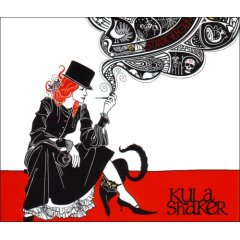
[2007]
Album "Strangefolk"
Dedicata a Monsieur Berlus(le)con, il piccolo dittatore di questo nostro sordido, laido, viscido, purulento, infetto, lurido porno-paese...
Dio è (Berlus)con noi!!!
Album "Strangefolk"
Dedicata a Monsieur Berlus(le)con, il piccolo dittatore di questo nostro sordido, laido, viscido, purulento, infetto, lurido porno-paese...
Dio è (Berlus)con noi!!!
I'm an A1 Major League sociopath
(continuer)
(continuer)
envoyé par Alessandro 15/2/2010 - 23:51
Our Only Weapon
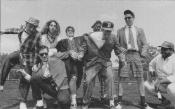
[1993]
Album "Don't Know How to Party"
Album "Don't Know How to Party"
Read the paper, things look grim
(continuer)
(continuer)
envoyé par Alessandro 15/2/2010 - 23:30
Guns And The Young
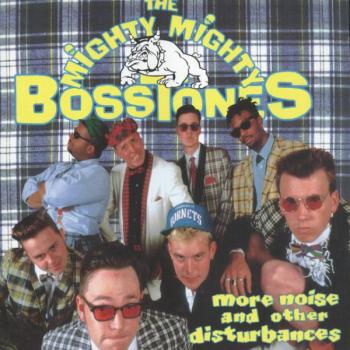
[1991]
Album "More Noise and Other Disturbances"
Album "More Noise and Other Disturbances"
Police have no suspects yet...
(continuer)
(continuer)
envoyé par Alessandro 15/2/2010 - 23:27
Georges Brassens: Les passantes
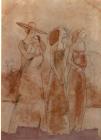
Deutsche Fassung von Christoph Gerhard
Eine deutsche gereimte und singbare Version, geschrieben Ende der 70-er Jahre, die auf der Übertragung von Fabrizio de André ins Italienische basiert.
Una versione in rima e cantabile, scritta alla fine degli anni 70 e basata sulla versione italiana di Fabrizio de André.
Una versione in rima e cantabile, scritta alla fine degli anni 70 e basata sulla versione italiana di Fabrizio de André.
VORÜBERGEHEND (DIE PASSANTINNEN)
(continuer)
(continuer)
envoyé par Christoph Gerhard 15/2/2010 - 23:26
Auschwitz, o Canzone del bambino nel vento

TEDESCO / GERMAN / ALLEMAND / SAKSA [3]
Versione tedesca di Christoph Gerhard
Deutsche Version von Christoph Gerhard
German version by Christoph Gerhard
Version allemande de Christoph Gerhard
Christoph Gerhardin saksankielinen versio
[ > 1980]
Versione tedesca di Christoph Gerhard
Deutsche Version von Christoph Gerhard
German version by Christoph Gerhard
Version allemande de Christoph Gerhard
Christoph Gerhardin saksankielinen versio
[ > 1980]
Ancora una versione cantabile (basta che gli ultimi due versi - che poi sono una ripetizione - si rimano), scritta nei primi anni ottanta.
Noch eine singbare Version (es reicht ja, dass die beiden letzten Verse - die auch noch eine Wiederholung sind - sich reimen), geschrieben Anfang der 80-er Jahre.
Noch eine singbare Version (es reicht ja, dass die beiden letzten Verse - die auch noch eine Wiederholung sind - sich reimen), geschrieben Anfang der 80-er Jahre.
AUSCHWITZ
(continuer)
(continuer)
envoyé par Christoph Gerhard 15/2/2010 - 22:04
'L rivarà
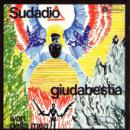
Ô merci, Riccardo de ses précisions, mais que faire ?
« Divin par le haut, bestial par le bas »... Difficile de traduire autrement. Mais, j'invite à relire le couplet :
"De ma fenêtre, je ne vois plus de héros
Mais bien plus souvent un bête humain
Divin par le haut, bestial par le bas,"
Et l'expression : un bête humain qui renvoie directement à Zola : La Bête Humaine, c'est-à-dire exactement le prolétaire – dans les conditions du siècle et pour tout dire, de l'univers de Zola. Par parenthèse, encore une histoire de locomotive... la Lison. Mais aussi, polysémie inévitable, un humain bête : donc à la fois animal et idiot, soit aussi un humain, tout bêtement, un simple humain, un humain quelconque (qualsiasi...).
Cela dit, on a en effet l'intention de traduire Ivan Della Mea – tout simplement aussi, car on l'aime bien.
Marco Valdo M.I. et Lucien Lane
« Divin par le haut, bestial par le bas »... Difficile de traduire autrement. Mais, j'invite à relire le couplet :
"De ma fenêtre, je ne vois plus de héros
Mais bien plus souvent un bête humain
Divin par le haut, bestial par le bas,"
Et l'expression : un bête humain qui renvoie directement à Zola : La Bête Humaine, c'est-à-dire exactement le prolétaire – dans les conditions du siècle et pour tout dire, de l'univers de Zola. Par parenthèse, encore une histoire de locomotive... la Lison. Mais aussi, polysémie inévitable, un humain bête : donc à la fois animal et idiot, soit aussi un humain, tout bêtement, un simple humain, un humain quelconque (qualsiasi...).
Cela dit, on a en effet l'intention de traduire Ivan Della Mea – tout simplement aussi, car on l'aime bien.
Marco Valdo M.I. et Lucien Lane
Marco Valdo M.I. 15/2/2010 - 21:40
×
![]()







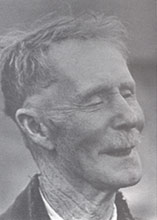
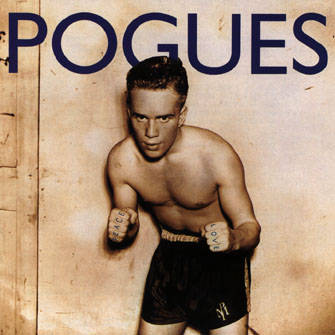
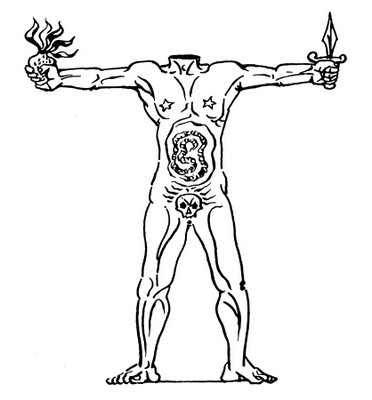

"Bordate di fischi e proteste in sala all'Ariston da larga parte del pubblico quando sul palco sono arrivati Pupo ed Emanuele Filiberto, con il tenore Luca Canonici, accompagnati dal ct azzurro Marcello Lippi per l'esecuzione del brano 'Italia amore mio' al Festival della canzione italiana."
Da La Repubblica Ultima Ora